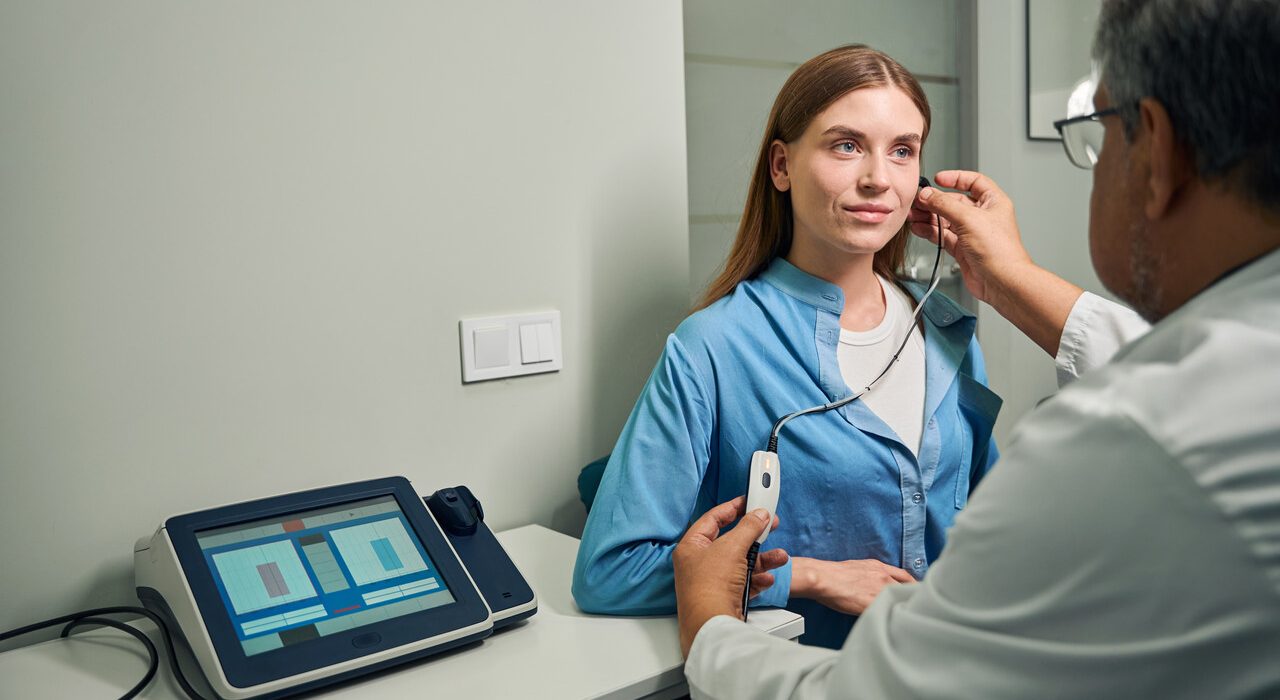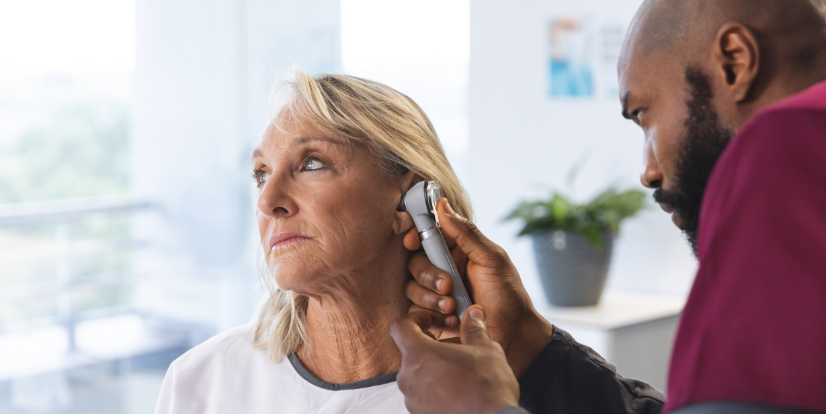Have you been told to undergo a hearing loss test recently because all you can hear are muffled sounds?
Hearing is one of our most vital senses, yet many people overlook its importance until issues arise. If you have ever wondered how to assess your hearing abilities or what a hearing loss test entails, you are not alone.
Audiometry plays a crucial role in evaluating our auditory health and identifying potential problems early on. In this blog, we will understand the different types of tests and decipher their results.
What Are The Different Types of Hearing Loss Tests?
When it comes to assessing the type of hearing loss, several tests are commonly used in audiometry. Each test for hearing loss offers unique insights into the nature and extent of auditory issues. Some common audiometry tests include:
- Pure Tone Audiometry
It is one of the most widely recognized methods. Pure tone audiometry test measures an individual’s ability to hear various pitches and volumes by using a series of tones presented through headphones. - Speech Audiometry
Speech audiometry tests take 10-15 minutes. The test takes place in a soundproof room and your audiologist will make you wear headphones. The audiologist plays a recording of a list of common words spoken at different volumes. Your audiologist will ask you to repeat those words played at different volumes. This will help him to determine the lowest volume at which you can hear the speech. This will help your audiologist to measure your speech discrimination and word recognition ability. - Tympanometry
Tympanometry helps in detecting any issue of the middle ear. The test measures how your eardrum moves. The eardrum is present in the middle ear. This test helps to diagnose any problem with the middle ear that prevents the sound wave from reaching the inner ear. - Auditory Brainstem Response
Auditory brainstem response (ABR) test or auditory evoked potential (AEP) helps to detect any deafness of the inner ear and any deafness caused due to a defect in the auditory brain pathway.ABR is generally advised for people who fail to complete hearing tests.
ABR is also indicated if your doctor suspects that your hearing loss is because of brain or brain pathway obstruction. - Otoacoustic Emissions (OAEs)
An OAE test measures otoacoustic emissions, or OAEs, which are sounds produced by the inner ear when responding to sound.
OAE is used to determine how well your inner ear, or cochlea, works. If there is a blockage in your outer or middle ear, the sounds will not be able to get through to the inner ear. If there is a blockage, the vibrations or sounds cannot be heard again.
These diverse testing methods show hearing loss in audiometry tests. By understanding the test results, your doctor can get a comprehensive picture of your auditory health.
What Tests Are Used To Determine Conductive Hearing Loss?
Conductive hearing loss happens when the sound waves fail to reach the middle ear from the external ear. Generally, Rinne and Weber tests help to identify conductive hearing loss.
- Rinne Test
Rinne tests involve striking a tuning fork behind one ear and signaling to the doctor when you can’t hear it. Afterward, the doctor moves the tuning fork next to your ear canal. When you can’t hear that sound anymore, you signal again to the doctor. The doctor records the length of time you hear each sound.
The Rinne test shows the air conduction times which are twice as long as bone conduction times in normal hearing. As a result, you will hear the sound next to your ear twice as long as the sound behind your ear if you have conductive hearing loss.
You may hear air conduction longer than bone conduction if you have sensorineural hearing loss, but they may not be twice as long. - Weber Test
During a Weber test, a tuning fork is struck on the mid-back of your head by the doctor.
The doctor will ask you whether the sound was best heard in the left ear, the right ear, or both equally. Normal hearing will produce equal sound in both ears. The sound will be heard best in the abnormal ear if you have conductive loss. If you have sensory loss, the sound will be heard best in the normal ear.
Is Genetic Testing For Hearing Loss Beneficial?
Genetic testing for hearing loss helps you understand the cause of hearing loss. The level of genetic alteration allows doctors to anticipate the potential severity of the condition. Furthermore, it also helps to understand associated symptoms, leading to prompt medical intervention.
Identifying the cause of your hearing loss can help you understand the likelihood of passing it on to your children.
Why Is It Important To Undergo Regular Hearing Tests For Hearing Loss?
Regular hearing tests are necessary to screen for any hearing difficulty. By undergoing regular hearing tests your doctor can monitor the:
- Any reduction in hearing
- Early detection of hearing loss means early treatment
Furthermore hearing tests in people with hearing difficulty can track any changes in the hearing levels over time.
Conclusion
Hearing loss affects the quality of our lives. However early detection of hearing loss can help you get the correct treatment for your hearing loss. Early detection helps to improve your treatment outcomes too.
Different types of tests for hearing loss offer a comprehensive approach to understanding and managing hearing health. These tests empower healthcare providers about the cause of deafness so that they can help you with the best treatment.
Regular hearing assessments remain essential for early detection and intervention, ensuring that changes in hearing are tracked and addressed promptly. By embracing these tests, individuals can take proactive steps toward preserving one of our most precious senses.
If you are looking for professional help for your hearing loss, we can help you. At Know Your Health our team can help you find the best otolaryngologist in your neighborhood.






